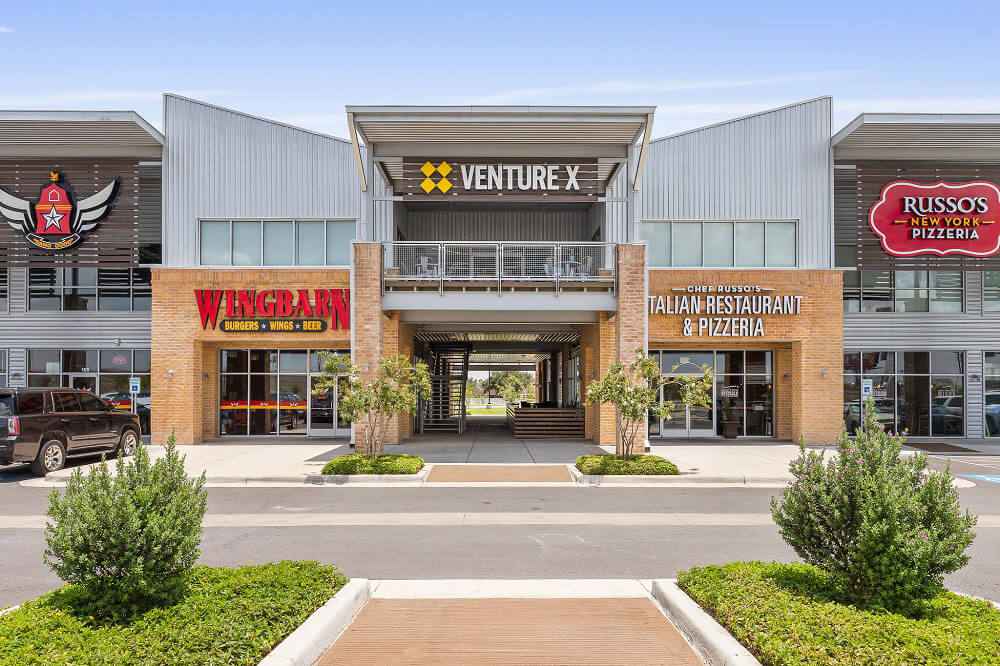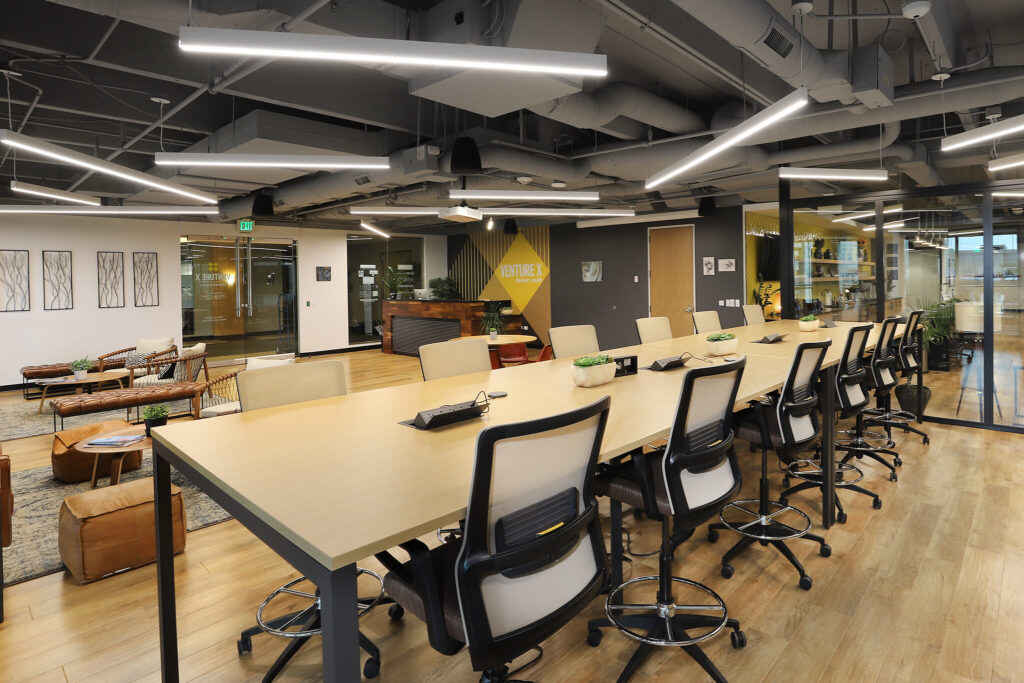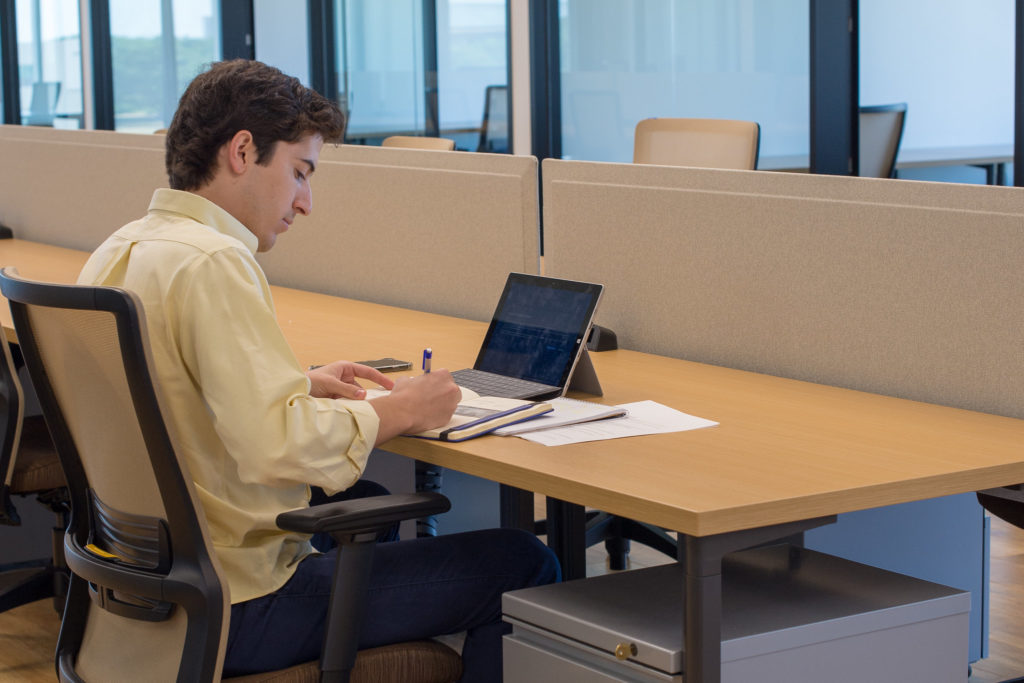With the rise of the gig economy and record numbers of remote workers, it’s become clear that coworking is not just a fad – it’s the future of business.
Beyond providing a flexible workspace for freelance and remote workers, the coworking model offers a similarly unforeseen degree of flexibility for business owners and employers.
Month-to-month lease structures and seamless scalability make coworking a much more convenient, cost-effective and low-commitment office option for employers growing their business.
By offering more flexibility for employers and employees alike, shared workspaces have alleviated many real estate-related pain points faced by the American workforce. With such an innovative solution answering widespread demand, it may come as no surprise that coworking has taken off so quickly.
Watch the video below to learn why coworking is the future of work.
As shared workspace and flexible office trends gain even more traction, experts have been quick to point toward the bright future of the coworking industry.
Read on to learn more about the reasons coworking is the future of business:
1. Market experts report coworking could take over as much as 30 percent of U.S. office space by 2023.
Based on the current pace of expansion, as well as additional growth potential and available real estate and market share, experts project a strong coworking industry foothold in the future.
In other words, the rapid growth seen by the coworking industry is also sustainable – and it’s not expected to slow any time soon. This also means that flexible workspaces will soon overtake a great deal of existing office real estate, further expanding the industry’s massive footprint across the United States.
If coworking overtakes 30 percent of office space, shared workspace real estate will span hundreds of millions of square feet in major markets. Even conservatively speaking, if these spaces comprised just 20 percent of future office real estate, they would occupy 718 million square feet.
Major markets, such as Chicago, Dallas, Houston, Los Angeles, New York, San Francisco and Washington D.C., would each have an estimated 40 million square feet of coworking inventory.

2. Coworking office spaces can be two and three times less expensive than traditional lease agreements in major cities.
Proprietary data from a coworking study overlaid with recent data from Cushman & Wakefield cites Hong Kong as the most expensive place to rent office space in the world. But, renting a desk in a shared workspace is almost three times cheaper in Hong Kong. The same is true in London, Hong Kong’s nearest global competitor, where it’s nearly two times less expensive.
According to the data, the cost of occupying a desk in Hong Kong under a traditional lease agreement is $27,432USD per year. Studies from two decades of data show that in comparison, it costs just $7,607 per year to rent a desk in a coworking office space – saving businesses up to 73 percent.
Businesses across verticals, and across the world, stand to realize substantial cost savings from leveraging flexible workspace. Because it’s such a cost-effective solution, coworking presents a significant incentive for enterprise-scale businesses to continue to adopt the model.

3. 40 percent of the American workforce will be freelancers, temporary workers, independent contractors and solopreneurs by 2020.
Flexible workspaces also present a strong solution for employees, fostering productivity and work-life balance.
The movement outside of the office and into shared workspaces has also coincided with a shift favoring collaboration over competition in business. This is just one of many reasons why coworking office spaces have become so popular among working professionals.
By sharing the same working environment, professionals across industries are afforded the unique opportunity to learn from one another, network, spark creativity and more.

In 2017, there were 542,000 people working in coworking spaces in the U.S. This is forecast to increase to roughly 1.08 million people by 2022.
Currently, shared workspaces provide a dynamic, flexible and professional environment for remote and freelance workers alike. The crucial function served by coworking spaces will only continue to grow in scope and importance, as more of the workforce moves toward pursuing an independent career within the gig economy.
Beyond present-day benefits for remote workers, coworking spaces will soon also provide an unprecedented number of self-employed and independent workers with all the professional-grade office amenities previously reserved for larger corporations.
The democratization of the workplace, rise of flexible working options and strength of the coworking industry position it for strong, sustainable growth in the future.